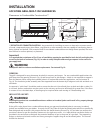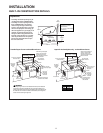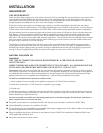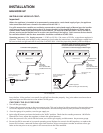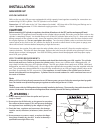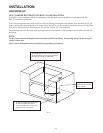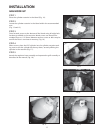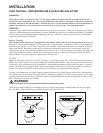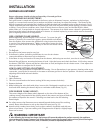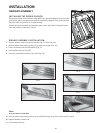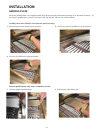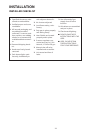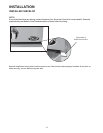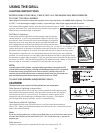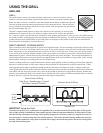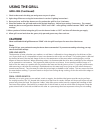Special offers from our partners!

Find Replacement BBQ Parts for 20,308 Models. Repair your BBQ today.
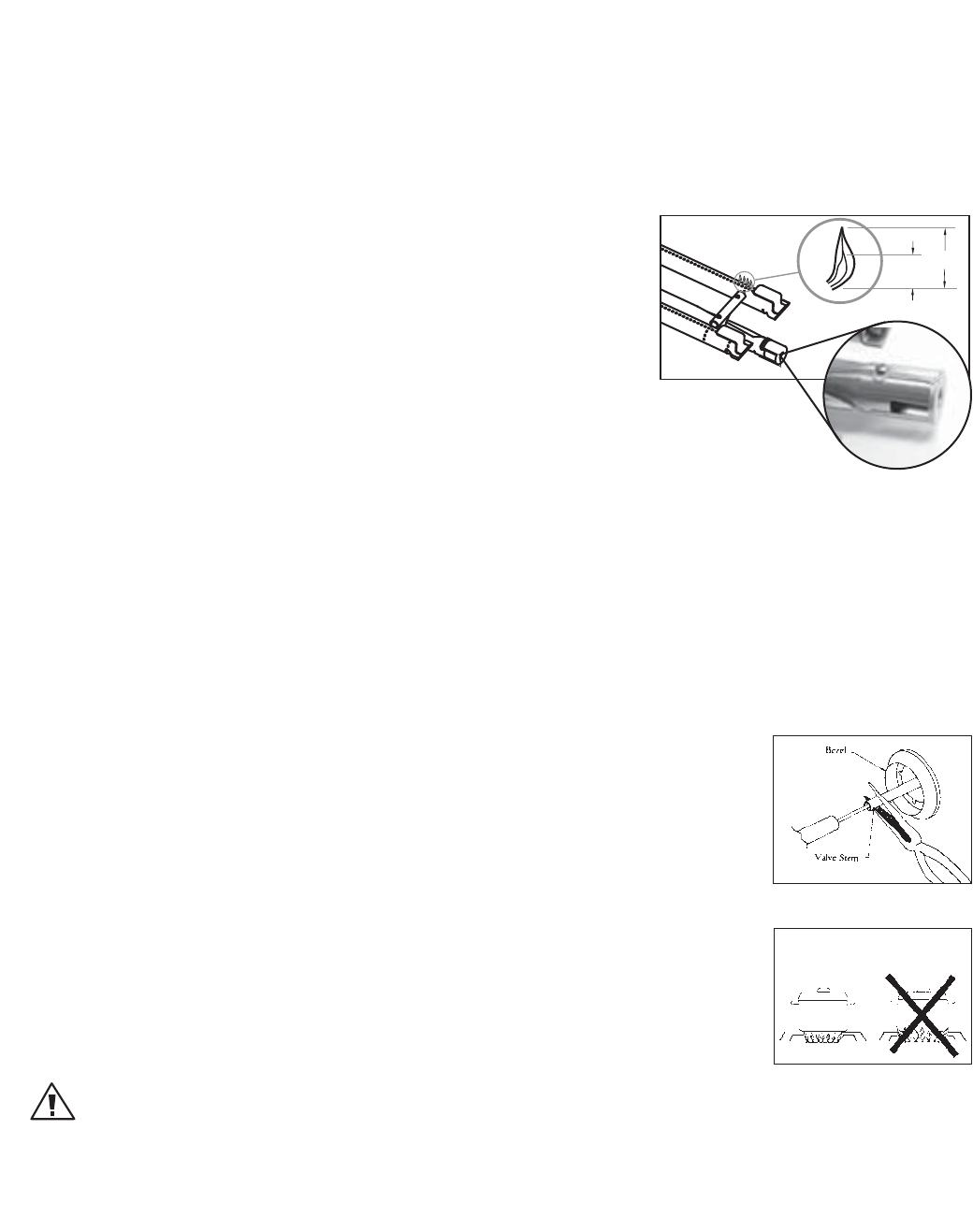
Burner adjustment should only be performed by a licenced gas fitter.
GRILL BURNER AIR ADJUSTMENT:
Each grill burner is tested and adjusted at the factory prior to shipment; however, variations in the local gas
supply or a conversion from one gas to another may make it necessary to adjust the burners. The flames of the
burners (except the rotisserie burner) should be visually checked and compared to that of the drawing in Fig.21.
Flames should be blue and stable with no yellow tips (LPG units may have some yellow tipping), excessive noise
or lifting. If any of these conditions exist, check if the air shutter or burner ports are blocked by dirt, debris,
spider webs, etc. Proceed with air shutter adjustment. The amount of air which enters a burner is governed by a
metal cap at the inlet of the burner called an air shutter. It is locked in place by a screw which must be loosened
prior to lighting the burner for adjustment.
GRILL BURNER FLAME HEIGHT:
Before beginning, ensure the grill is OFF and cool. To access the grill
burner air shutters, first remove the grates, grease shields and radiants
from the firebox, then remove the grill burner using instructions shown
in section ‘Care and maintenance’. With a screw driver, loosen the lock
screw on the face of the air shutter slightly so that the air shutter can be
adjusted.
To Adjust:
1. Be careful as the burner may be very hot.
2. If the flame is yellow, indicating insufficient air, turn the air shutter
counterclockwise to allow more air to the burner.
3. If the flame is noisy and tends to lift away from the burner, indicating too much air, turn the air shutter clockwise.
Reinstall the grill burner, ensuring the burner is level. Light the burner and check the flame. If all is okay, remove
the burner (CAUTION - burner may be hot, allow time to cool) and tighten the air shutter screw. If not repeat the
above procedure to readjust the air shutter.
LOW FLAME SETTING ADJUSTMENT:
The valves on the grill feature an adjustable low setting. Due to fluctuations in gas pressure, heating value or gas
conversion, you may feel it necessary to increase or decrease gas flow in the low position. We do not recommend
adjusting the infrared rotisserie burner.
To Adjust:
1. Light the burner.
2. Turn the control knob to the lowest setting (all the way counter-clockwise).
3. Remove the knob.
4. While holding the valve shaft with pliers, insert a thin, flat tipped screwdriver into the
shaft and while viewing the burner adjust to a minimum stable flame (Fig. 22).
SIDE BURNER FLAME HEIGHT:
The correct height of the flame mainly depends on the size of the bottom of the
cooking utensil, the material of the cooking utensil, the amount and type of food and
the amount of liquid in the utensil. Following are some basic rules for selecting
flame height.
■
For safety reasons the flame must never extend beyond the bottom of the cooking
utensil. Never allow flames to curl up the side of the pan (see Fig. 23).
■
Utensils which conduct heat slowly (such as glass-ceramic) should be used with me-
dium to low flames. If you are cooking with a large amount of liquid, a slightly larger
flame can be used.
WARNING: IMPORTANT!
If, after following the instructions above, the burners still cannot be adjusted to perform correctly, the appliance
must not be used. Contact Customer Care. Before lighting, inspect the gas supply piping or hose prior to turning the
gas “on”. If there is evidence of cuts, wear, or abrasion, it must be replaced prior to use.
38 m
m
10 mm
FIG. 21 Burner Flame
Height
FIG. 22 Low Setting Adjustment
INSTALLATION
BURNER ADJUSTMENT
Fig. 23
Proper Flame Height
OPEN
CLOSE
19



